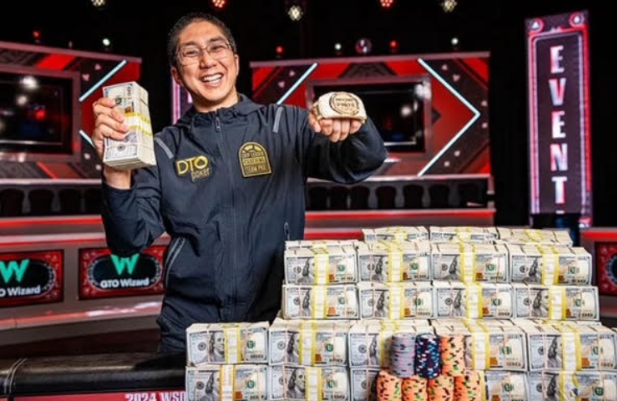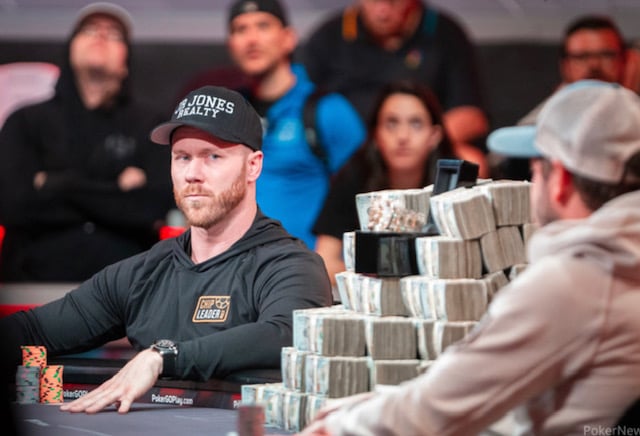
Tournament poker is thrilling and unpredictable with variance playing a significant role. Variance refers to the natural ups and downs of the game, where short-term outcomes may deviate from expected results. To succeed in the face of variance, a strong mental and emotional approach is crucial.
Embrace the Reality of Variance
Understanding and accepting the reality of variance is the first step toward adjusting your mental approach. You are usually competing with hundreds if not thousands of other players with fortunes changing with every card and only 10% of the field making it to the money.
Variance is an inherent part of poker, and even the most skilled players can experience long downswings. Recognize that short-term results do not necessarily reflect your true skill level and that long-term success is what matters.
Learn more about how the best pros deal with million dollar downswings HERE.
Here is CLC’s Alex Foxen on how he deals with the ups and downs of poker tournaments: “In dealing with tournament variance, the number one thing I try to do is completely detach from it. Another thing that I’ve found helpful is to see your poker study as a way to gain the maximum amount of control that you can over your outcome even if that control is extremely capped.”
Cultivate Patience and Long-Term Thinking
Patience is a virtue that becomes even more vital in the face of variance. Accept that you cannot control the outcome of individual hands or tournaments, but you can control your decision-making process. Focus on making sound and rational decisions based on probabilities and expected value rather than immediate results.
Adopt a long-term perspective. Understand that a single tournament or session does not define your overall success as a player. By focusing on the big picture, you can detach yourself from short-term fluctuations and stay motivated despite setbacks.
Practice Bankroll Management
Proper bankroll management is a crucial aspect of handling variance effectively. Set aside a dedicated poker bankroll separate from your personal finances. By adhering to bankroll management principles, you can mitigate the risk of ruin and ensure you have sufficient funds to withstand the swings of variance.
Bankroll management also provides peace of mind, allowing you to approach the game without the constant fear of going broke. It frees you from the pressure of having to win every tournament and allows you to make decisions based on long-term profitability.
Develop a Growth Mindset
A growth mindset is a powerful tool for managing the mental and emotional challenges posed by variance. Embrace the idea that setbacks and downswings are opportunities for growth and learning. Instead of dwelling on losses, focus on analyzing your play, identifying areas for improvement, and seeking ways to enhance your skills.
View each tournament as a learning experience rather than a make-or-break situation. By adopting a growth mindset, you can turn adversity into an opportunity to refine your strategy, expand your knowledge, and become a stronger player in the long run.
Alex Foxen: “If you’re always focused on performing better and making better decisions, that will give you a greater element of control over your outcomes. Pursue playing perfectly rather than focusing on outcomes.”









